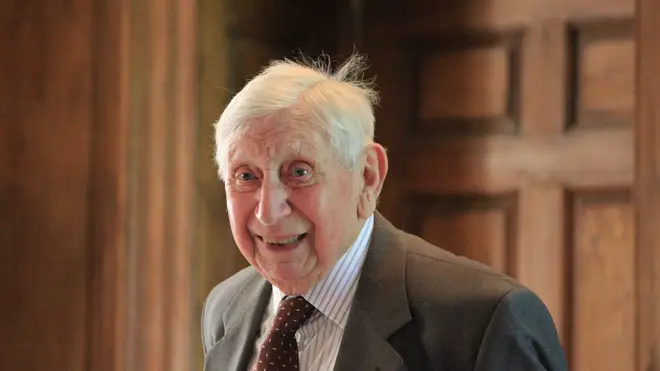
Iain Dale 7pm - 10pm
6 August 2021, 15:34

Professor Ken Cattermole’s research supported the development of modern computers, mobile phones and televisions.
A scientist whose research supported the development of modern computers and mobile phones has died aged 98.
Professor Ken Cattermole, of East Bergholt in Suffolk, worked for many years at the University of Essex and helped launch its telecommunications programme.
His book Principles Of Pulse Code Modulation, published in 1969, became a standard reference on the subject, the university said.
Pulse code modulation is a method of turning analogue signals, such as audio and video, into a digital form which can be transmitted.
In 1996, the Institution of Electrical Engineers awarded Prof Cattermole the JJ Thomson Medal for his contribution to the development of telecommunications transmission in the UK and his work on pulse code modulation.
The medal is awarded annually to individuals or teams who have made major and distinguished contributions in electronics.
Laboratories at the University of Essex were also named after Prof Cattermole to mark his contribution.
He died peacefully on July 21.
Professor Stuart Walker, from the university’s School of Computer Science and Engineering, said: “Ken was in at the beginning of the development of pulse code modulation, which turns ordinary analogue signals, including audio and video, into a digital form which can be transmitted without limit, stored forever, cleaned up and, these days, strongly encrypted as well.
“It really is the foundation for all the mobile phones, computers and televisions we use today.”
Prof Cattermole served with the Corps of the Royal Electrical and Mechanical Engineers in the Second World War before working in industry, initially for Standard Telephones and Cables (STC).
He joined the University of Essex in 1968 in the newly created role of chair of communications and for some years advised government on communication standards, the university said.
Prof Cattermole fully retired in 1990 but continued to run a science group, alongside his other interests of playing the piano and gardening.
His son Peter Cattermole said his father had a “remarkable life”.
Prof Cattermole, husband of the late Joan Cattermole, is survived by his son Peter, two grandsons and two great-grandsons.